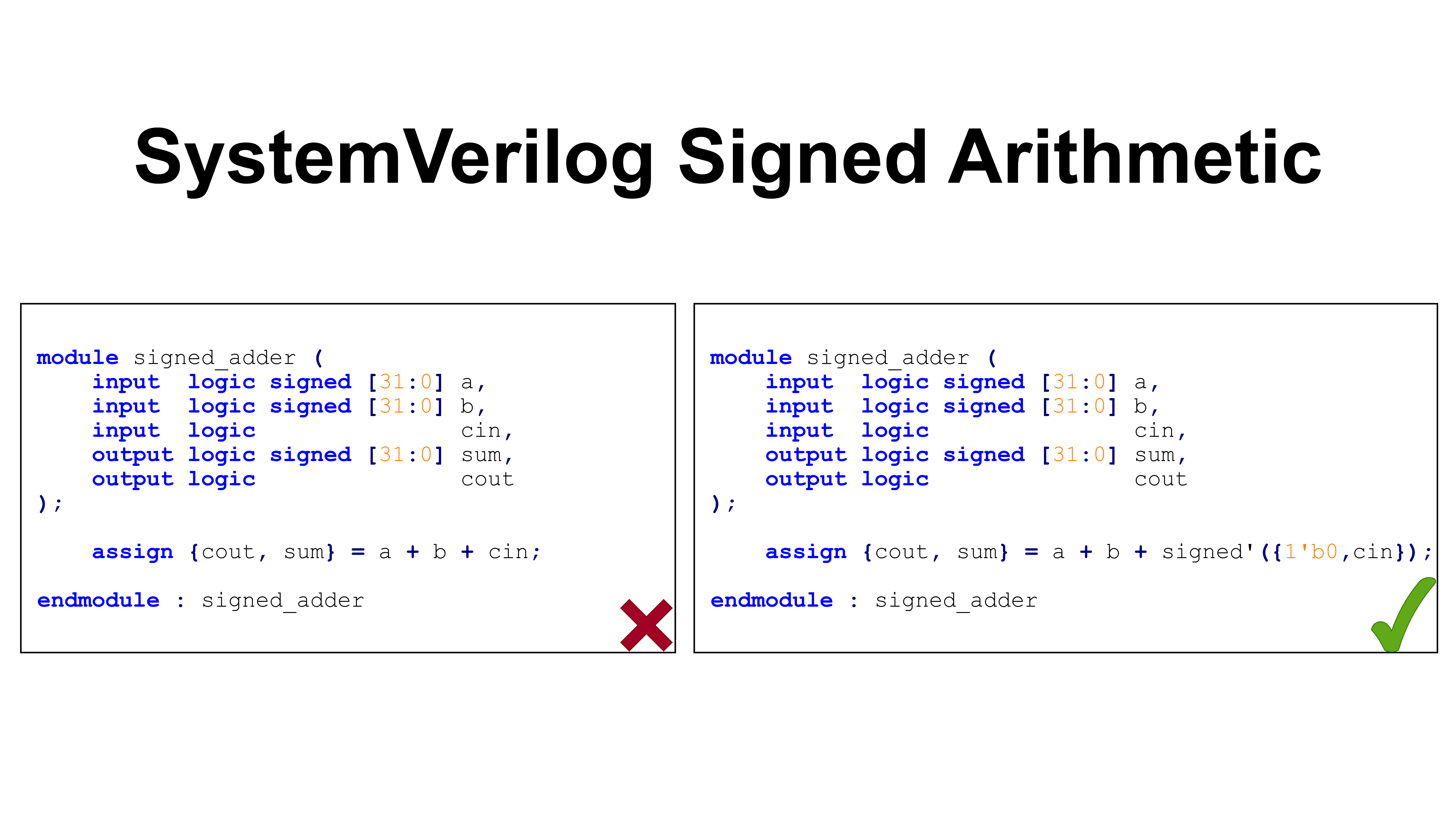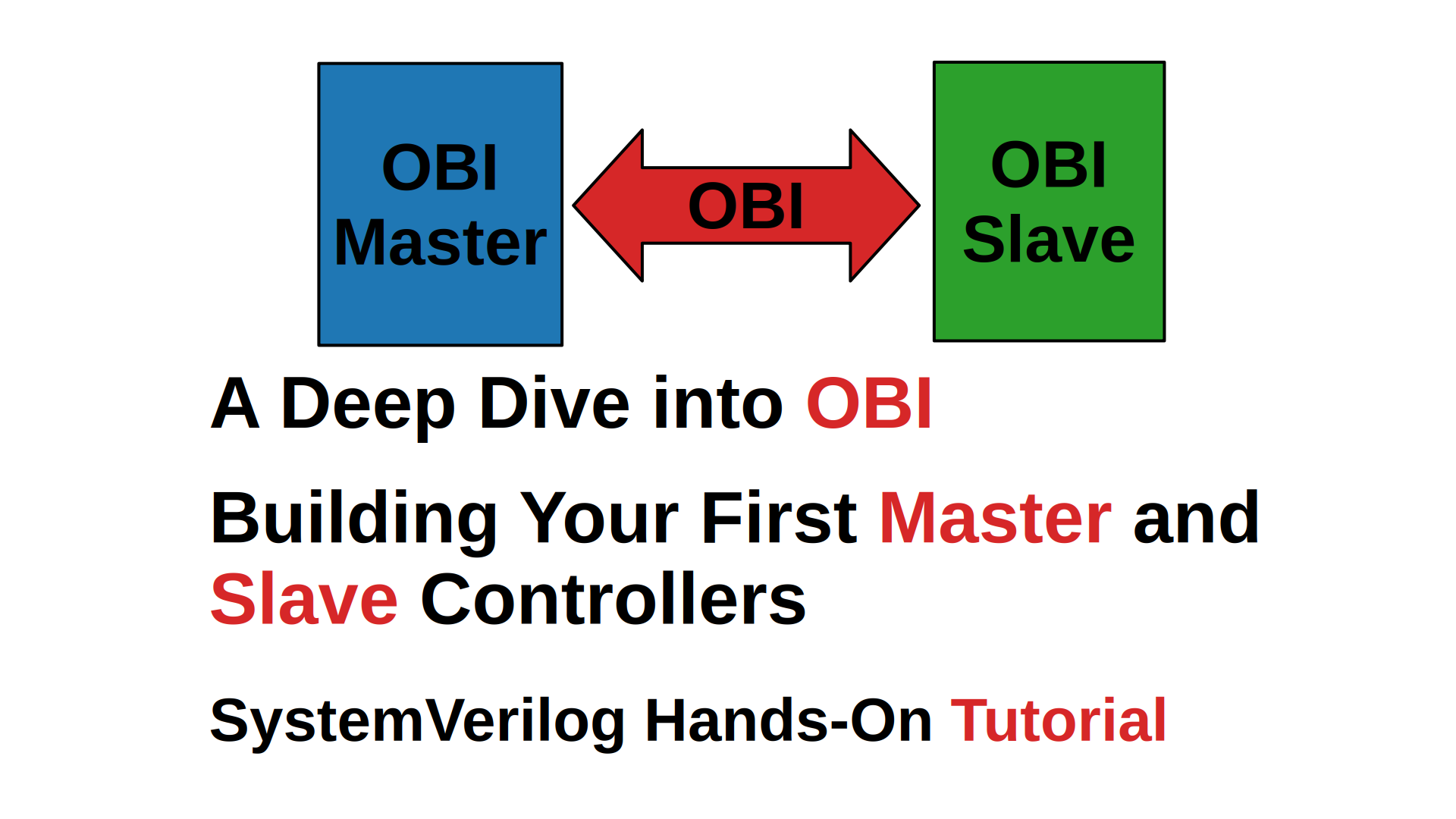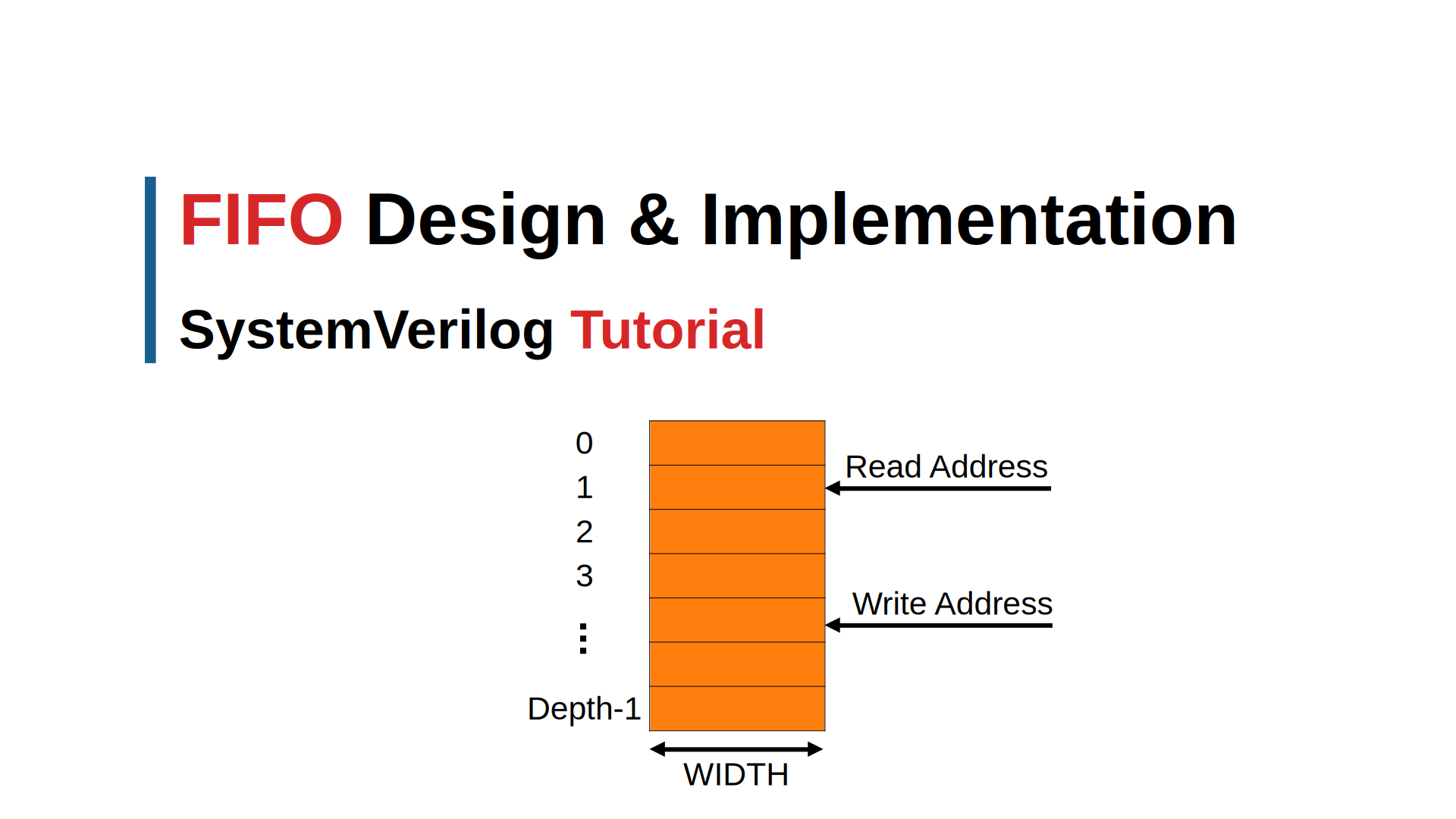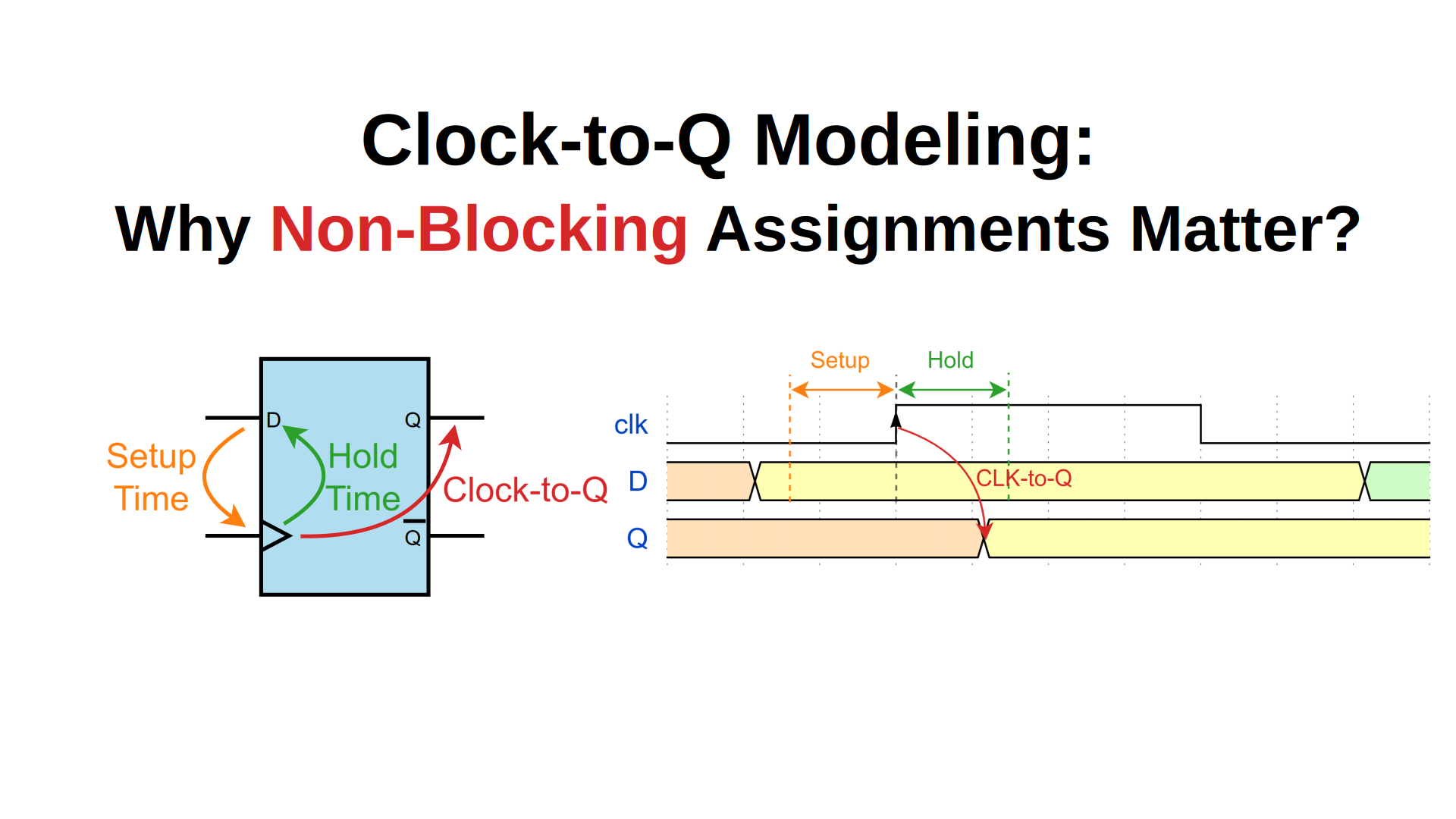SV11. Signed Arithmetic in SystemVerilog

This page summarizes the key rules and pitfalls for synthesizable signed arithmetic in SystemVerilog, focusing on vector size, signed vs. unsigned behavior, and correct handling of carry-in signals. Each section provides code examples and explanations to help hardware designers avoid common mistakes.
Video Tutorial
Watch this comprehensive video explanation of Signed Arithmetic in SystemVerilog:
Synthesizable Signed Arithmetic in SystemVerilog
This wiki page summarizes the key rules and pitfalls for synthesizable signed arithmetic in SystemVerilog, focusing on vector size, signed vs. unsigned behavior, and correct handling of carry-in signals. Each section provides code examples and explanations to help hardware designers avoid common mistakes.
1. Vector Size Rules
SystemVerilog operators can be grouped by how they determine operand sizes:
Self-Determined Operands
- Definition: Each operand is evaluated independently, so vector sizes do not need to match.
- Example: Logical operators (such as
||). - Code Example:
logic [ 7:0] a; logic [15:0] b; logic r; assign r = a || b; // Checks if a or b is true, regardless of size
Context-Determined Operands
- Definition: Operands are sized to match the largest operand, extending smaller ones.
- Example: Bitwise operators, e.g., bitwise OR (
|). - Code Example:
logic [ 7:0] a; logic [ 8:0] b; logic [15:0] r; assign r = a | b; // All operands are expanded to 16 bits
2. Signed and Unsigned Rules
- Operation Type: For arithmetic, comparison, and shift operations:
- If all operands are signed, the operation is signed.
- If any operand is unsigned, the operation is unsigned.
- Number Formats:
- Decimal literals (e.g.,
-1,2) are signed. - Based literals (e.g.,
8'hFF) are unsigned by default. - Adding
'sor'S(e.g.,8'shFF) makes a based literal signed.
- Decimal literals (e.g.,
- Result Types:
- Part-select results (e.g.,
b[15:0]) are always unsigned. - Concatenation results are always unsigned.
- Comparison and reduction operations always yield unsigned results.
- Part-select results (e.g.,
Code Example:
logic signed [31:0] s1, s2, s3;
logic [31:0] u1, u2, u3;
assign u3 = s1 * s2; // signed operation
assign s3 = s1 * u1; // unsigned operation
logic [31:0] a;
logic signed [15:0] b;
// b[15:0] is treated as unsigned and zero-extended
assign a = b[15:0];
3. Operation Size and Sign-Extension: Casting
Use casting to control vector size and sign interpretation:
logic signed [31:0] s1, s3;
logic [15:0] s4;
logic [31:0] u1;
assign s3 = s1 * u1; // unsigned operation (likely a mistake)
assign s3 = s1 * signed'(u1); // signed operation (u1 cast to signed)
assign s3 = 32'(s1) * signed'(u1); // sign-extend s1 to 32 bits and cast u1 to signed
4. Signed Adder with Carry-In: Common Pitfalls
(A) Unsigned Carry-In (Incorrect)
- If any operand (e.g.,
cin) is unsigned, the whole addition becomes unsigned. - If
aorbis negative, the result is not a correct signed sum.
module signed_adder (
input logic signed [31:0] a,
input logic signed [31:0] b,
input logic cin,
output logic signed [31:0] sum,
output logic cout
);
// Error: Unsigned cin makes sum unsigned
assign {cout, sum} = a + b + cin;
endmodule : signed_adder
(B) Signed 1-bit Carry-In (Incorrect)
- Declaring
cinaslogic signedcauses sign extension:cin = 1'b0extends to all zeros (correct).cin = 1'b1extends to all ones (-1), causing the sum to bea + b - 1(incorrect).
module signed_adder (
input logic signed [31:0] a,
input logic signed [31:0] b,
input logic signed cin,
output logic signed [31:0] sum,
output logic cout
);
// Error: cin=1 becomes -1 after sign extension
assign {cout, sum} = a + b + cin;
endmodule : signed_adder
(C) Signed Cast of Carry-In (Still Incorrect)
- Explicitly casting a 1-bit
cinto signed does not change the width or fix the sign extension issue.
module signed_adder (
input logic signed [31:0] a,
input logic signed [31:0] b,
input logic cin,
output logic signed [31:0] sum,
output logic cout
);
// Error: signed'(cin) still sign-extends a 1-bit value
assign {cout, sum} = a + b + signed'(cin);
endmodule : signed_adder
5. Signed Adder with Correct Carry-In Handling
- Correct Approach: Widen
cinto at least 2 bits before casting.{1'b0, cin}forms a 2-bit vector:00or01.signed'({1'b0, cin})interprets this as 0 or 1 (never -1).
module signed_adder (
input logic signed [31:0] a,
input logic signed [31:0] b,
input logic cin,
output logic signed [31:0] sum,
output logic cout
);
// Correct: cin is widened before being cast to signed
assign {cout, sum} = a + b + signed'({1'b0, cin});
endmodule : signed_adder
6. Full Example: Signed Adder
module signed_adder (
input logic signed [31:0] a,
input logic signed [31:0] b,
input logic cin,
output logic signed [31:0] sum1, sum2,
output logic cout1, cout2
);
assign {cout1, sum1} = a + b + cin; // Incorrect: unsigned cin
assign {cout2, sum2} = a + b + signed'({1'b0, cin}); // Correct: cin properly widened and cast
endmodule : signed_adder
7. Signed Adder with Unsigned Carry-In: Waveform

Summary:
- Always be mindful of operand sizes and signedness in SystemVerilog arithmetic.
- For signed addition with a carry-in, always widen and cast the carry-in correctly to avoid subtle synthesis and simulation bugs.
Testbench for Demonstrating the Results
module signed_adder_tb;
// Test signals
logic signed [31:0] a, b;
logic cin;
logic signed [31:0] sum1, sum2;
logic cout1, cout2;
// Expected results
logic signed [33:0] expected_result;
// DUT instance
signed_adder dut (.*);
// Task for test execution
task test_case(
input logic signed [31:0] in_a, in_b,
input logic in_cin
);
a = in_a;
b = in_b;
cin = in_cin;
expected_result = $signed(a) + $signed(b) + $signed({1'b0, cin});
#5;
// Display results
$display("\nTime=%0t: a=%0d b=%0d cin=%0b", $time, a, b, cin);
$display("Method1: sum=%0d, cout=%0b", sum1, cout1);
$display("Method2: sum=%0d, cout=%0b", sum2, cout2);
// Verify results
if (sum1 !== sum2)
$display("Sum mismatch: sum1=%0d sum2=%0d", sum1, sum2);
if (cout1 !== cout2)
$display("Cout mismatch: cout1=%0b cout2=%0b", cout1, cout2);
#5;
endtask
// Test scenarios
initial begin
// Test case 1: Small positive numbers
test_case(32'd5, 32'd3, 1'b0);
test_case(32'd5, 32'd3, 1'b1);
// Test case 2: Negative numbers
test_case(-32'd5, -32'd3, 1'b0);
test_case(-32'd5, -32'd3, 1'b1);
// Test case 3: Mixed signs
test_case(32'd5, -32'd3, 1'b0);
test_case(32'd5, -32'd3, 1'b1);
// Test case 4: Overflow cases
test_case(32'h7FFFFFFF, 32'd1, 1'b0);
test_case(32'h7FFFFFFF, 32'd1, 1'b1);
// Test case 5: Negative overflow
test_case(-32'h80000000, -32'd1, 1'b0);
test_case(-32'h80000000, -32'd1, 1'b1);
#500;
$finish;
end
// Verification properties
property check_results;
@(a or b or cin) ##1
(sum1 == sum2) && (cout1 == cout2);
endproperty
assert property(check_results)
else $error("Result mismatch at time %0t", $time);
endmodule




